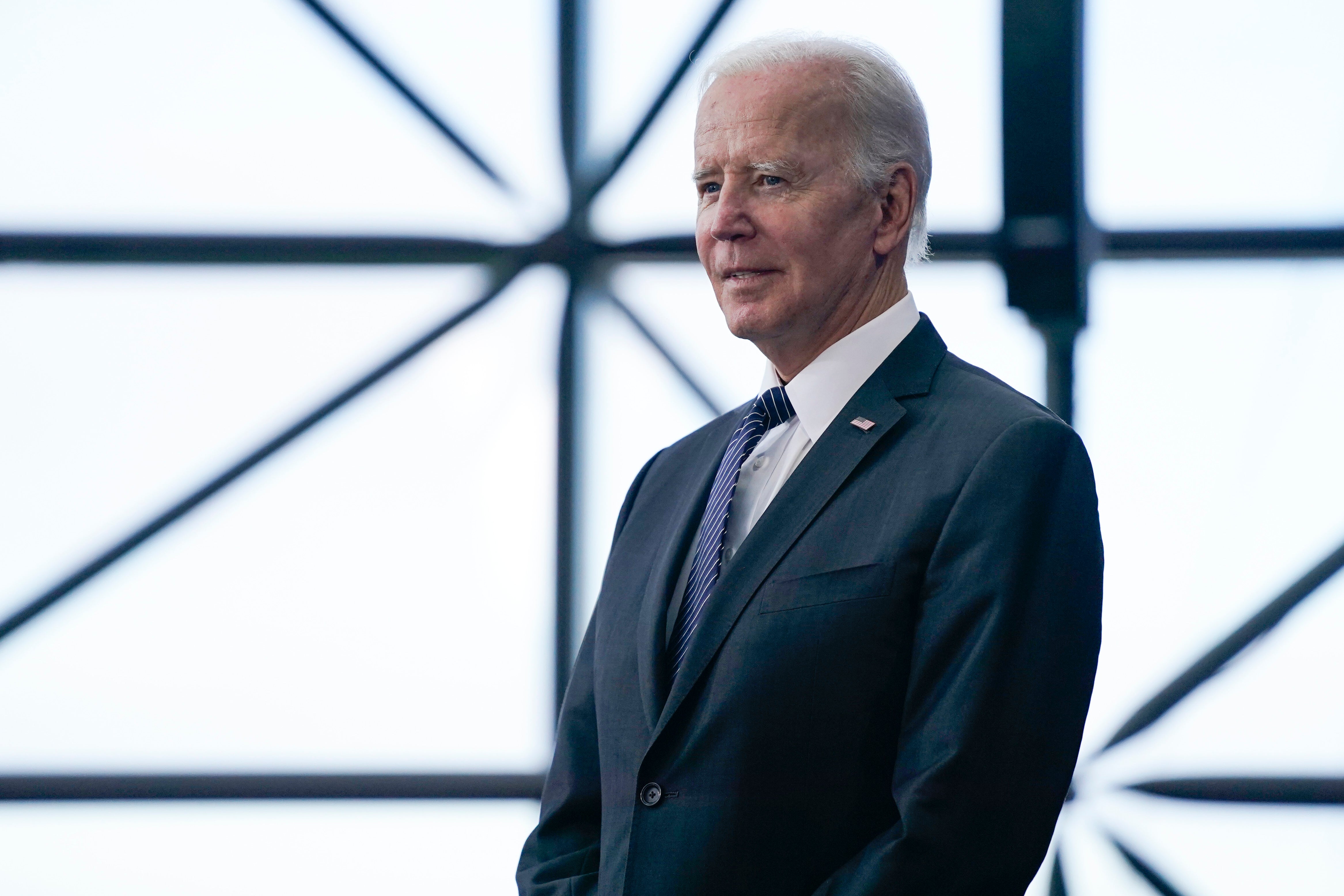Biden order to sharpen foreign investment screening process
President Joe Biden is set to sign an executive order that aims to sharpen the national security considerations taken in the federal government’s review process for foreign investment in the United States

Your support helps us to tell the story
From reproductive rights to climate change to Big Tech, The Independent is on the ground when the story is developing. Whether it's investigating the financials of Elon Musk's pro-Trump PAC or producing our latest documentary, 'The A Word', which shines a light on the American women fighting for reproductive rights, we know how important it is to parse out the facts from the messaging.
At such a critical moment in US history, we need reporters on the ground. Your donation allows us to keep sending journalists to speak to both sides of the story.
The Independent is trusted by Americans across the entire political spectrum. And unlike many other quality news outlets, we choose not to lock Americans out of our reporting and analysis with paywalls. We believe quality journalism should be available to everyone, paid for by those who can afford it.
Your support makes all the difference.President Joe Biden on Thursday will sign an executive order that administration officials say aims to sharpen the national security considerations taken in the federal government's review process for foreign investment in the United States.
Administration officials said the the order will bolster oversight by the Committee on Foreign Investment in the United States, an interagency group tasked with reviewing deals and mergers involving foreign people and entities.
The committee, known as CFIUS, is made up of members of the departments of State, Defense, Justice, Commerce, Energy and Homeland Security and is led by the Treasury secretary. It sends its findings and a recommendation to the president, who has the power to suspend or prohibit a deal.
While the White House said the new order is not targeted toward any particular country, it comes amid growing concern among U.S. officials about China's investments in the U.S. technology sector and other industries.
The order calls for CFIUS to weigh whether a foreign investment or sale could affect the resilience of critical U.S. supply chains and the impact it could have on U.S. technological leadership in areas affecting U.S. national security and on broader investment trends.
It also calls on CFIUS to consider cybersecurity risks that could stem from a transaction and stipulates that the risks to U.S. residents' sensitive data should also be considered.
“President Biden’s executive order highlights CFIUS’s increasing attention to national security risks in several key areas and sharpens the committee’s focus on protecting America’s national security, while maintaining the U.S. open investment policy,” Treasury Secretary Janet Yellen said in a statement. “Strengthening our supply chains and protecting against foreign threats enhances our national security, and this executive order highlights CFIUS’s important role in that work."
Biden's executive order comes after CFIUS' oversight role of foreign investment was significantly expanded by 2018 legislation passed by Congress.
CFIUS already has been considering many of the criteria laid out in Biden's executive order, according to senior administration officials, who briefed reporters on the condition of anonymity under ground rules set by the White House. But the officials added that the administration hopes by publicly highlighting and sharpening the committee's focus on what the administration sees as emerging risks, it will give greater clarity to businesses and investors as they look at national security risks that may arise from a potential transaction.
Before the 2018 legislation, CFIUS investigated cases in which a foreign company’s attempt to acquire or merge with an American company could pose a national security risk. The 2018 legislation expanded CFIUS' oversight to review certain joint ventures, minority stakes and real estate deals near military bases or other sensitive national security facilities.
The legislation was prompted by complaints Chinese companies were taking advantage of gaps in U.S. law and improperly obtaining technology and possibly sensitive information. U.S. lawmakers also have expressed concern that Chinese companies were using joint ventures with foreign companies or minority stakes in ventures to gain access to sensitive technology.
An annual Treasury Department report released in August showed Chinese investors more than doubled the number of applications they filed in 2021 seeking U.S. regulatory clearance for proposed deals.